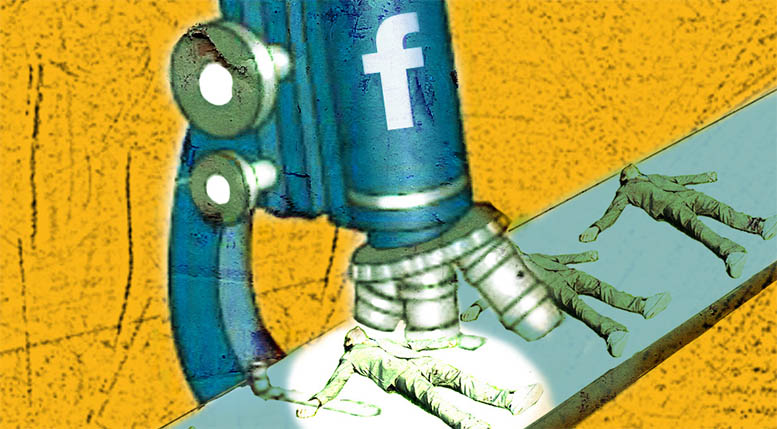In a critical analysis of Facebook’s censorship practices, James Bovard highlights the alarming trends in free speech regulation on social media platforms, particularly in the context of the political climate surrounding the Biden administration’s Covid policies. Bovard begins by recounting his personal experience of attempting to share a past article discussing “Dictatorial Democracy.” Despite being a historically relevant commentary from 2016, Facebook restricted access to it, citing violations of its “Community Standards.” This leads Bovard to question the criteria guiding such censorship decisions and whether they are genuinely rooted in platform integrity or serve to appease government demands.
Bovard reflects on a broader context of censorship where Facebook appears to selectively choose what can circulate based on political relevance and government authority. He suggests that the discrepancy in what content is allowed raises questions about Facebook’s consistency in enforcing its guidelines. The shift from allowing discussions about “dictatorial democracy” in past elections to banning them in the current political climate indicates a troubling evolution in the platform’s approach to controversial topics. The irony is noted in how inflammatory or hyperbolic comments—like comparing a presidential candidate to Hitler—might gain acceptance, while a reasoned discussion faces suppression.
The author also critiques Facebook’s appeals system, describing it as frustratingly opaque and patronizing. When attempting to contest a ban on sharing his book cover—an act he deemed rightful—Bovard found that the appeals process yielded superficial options that did not allow for genuine discourse. He contemplates whether AI algorithms employed by Facebook are compromising the platform’s integrity, especially when they rely on black-and-white metrics to judge content. Historical instances of censorship, such as the erasure of iconic images that detail governmental abuses, loop back into his argument about the troubling precedents of suppressing significant discourse under vague justifications.
Bovard draws attention to the role of federal government pressure on Facebook regarding Covid-19 content. He describes how the White House engaged with Facebook to suppress not only misinformation but even content that might offer alternative perspectives on the pandemic. Facebook’s compliance with these demands fuels a broader narrative of federal overreach into the realms of free speech, culminating in a federal judge deeming such actions as potentially the most significant attacks on free speech in the country’s history. Despite this critique from the judiciary, Facebook’s ongoing struggles with content moderation reflect an institutional reluctance to maintain independence from government influence.
In a subsequent shift, Mark Zuckerberg’s own admission of regret for past actions reveals a complex dynamic between tech giants and government agencies. Zuckerberg acknowledges that Facebook’s responsiveness to political pressure may have led to censorship of debatable content that could help maintain public trust. However, his assurances of future independence raise skepticism about whether Facebook will indeed shy away from similar practices moving forward. The legitimacy crisis facing American democracy grows more palpable as public debate is increasingly stifled on platforms once heralded as champions of free expression.
Ultimately, Bovard concludes that the interplay of censorship by platforms like Facebook undermines public trust in institutions and free speech, casting doubt on the First Amendment’s practical significance in an era defined by digital communication. If fundamental discussions about governance are tightly controlled and sensitive words are censored, the essence of a democratic society becomes hollow. As the race for online discourse continues, Bovard suggests users may find refuge in the mundane, but the ongoing struggle for meaningful expression remains a critical concern for democratic values headlong into a potential future defined by censorship.

